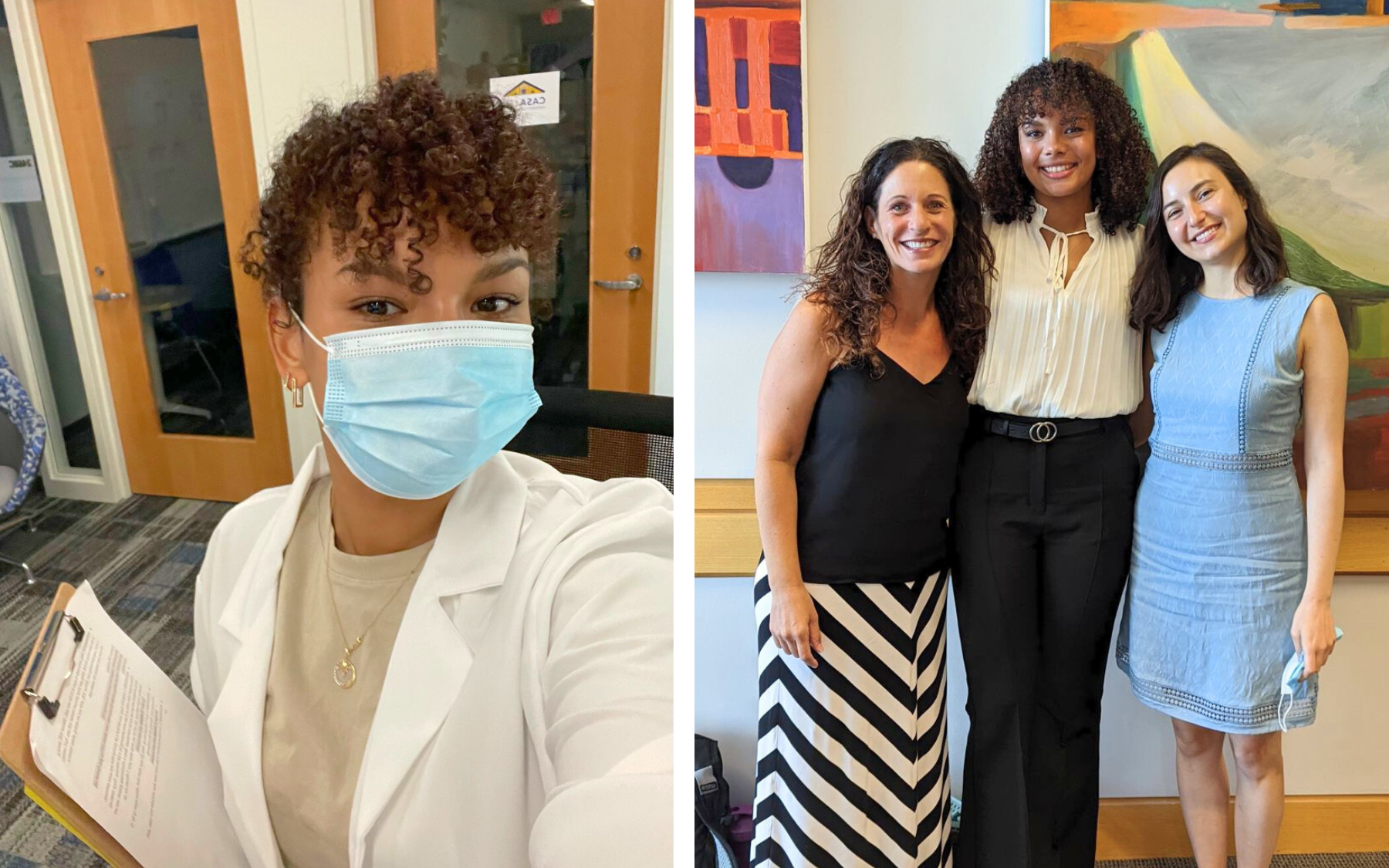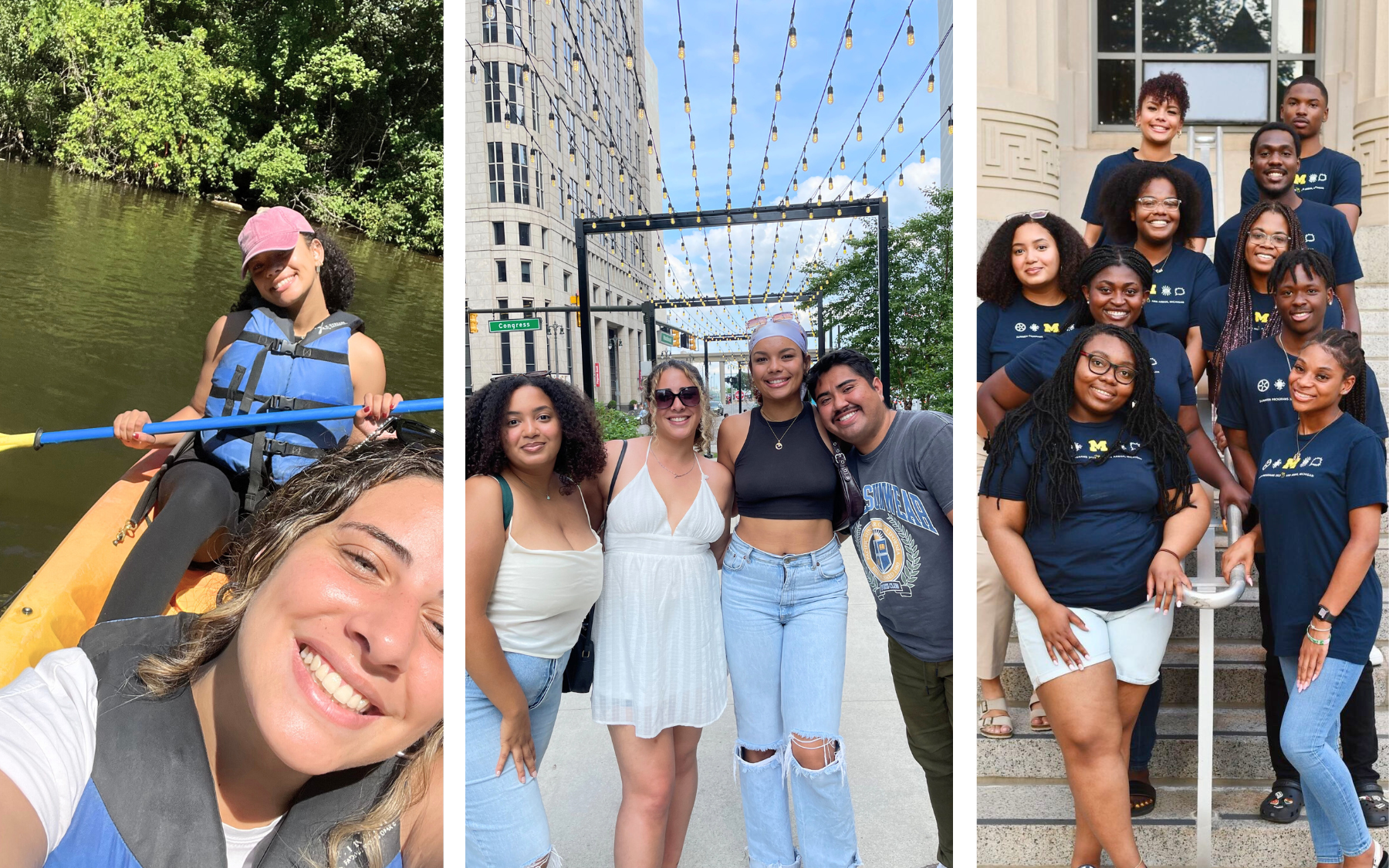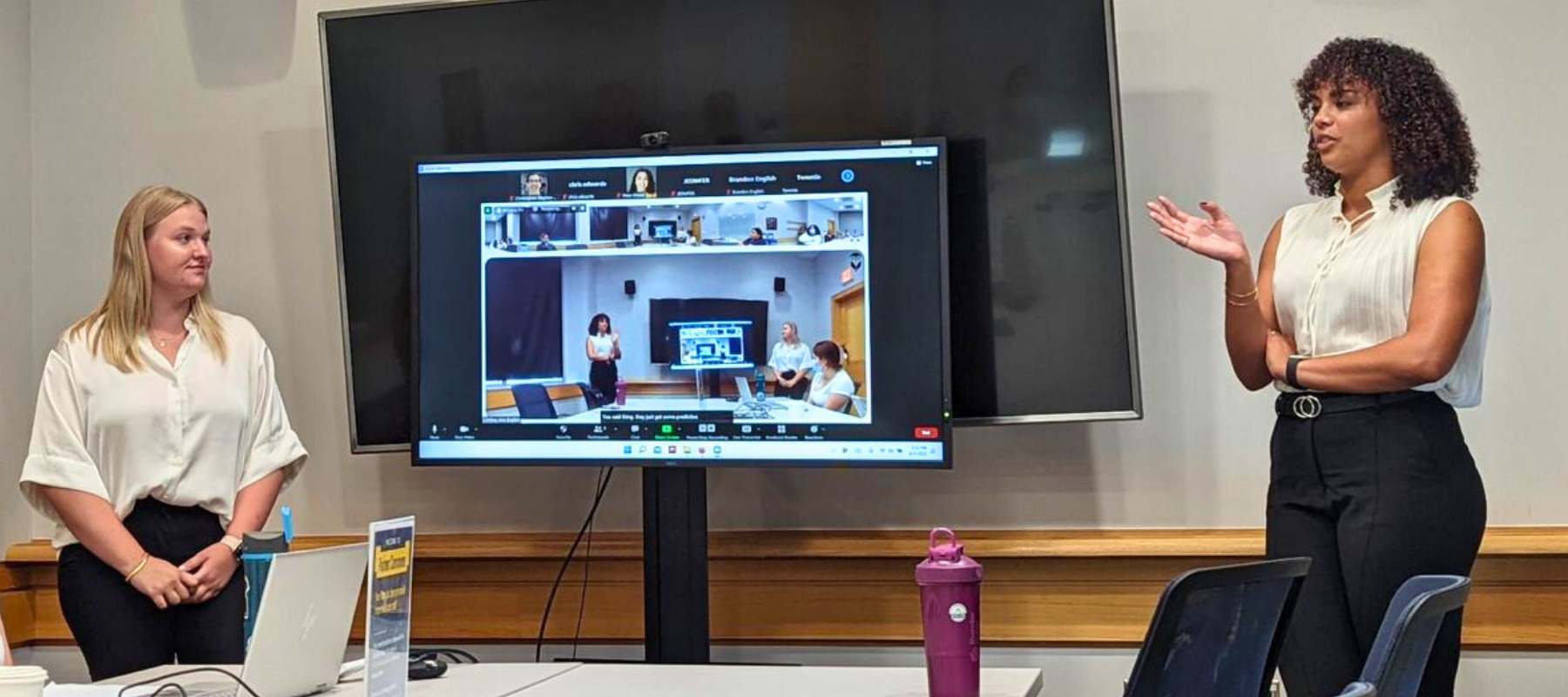Each summer, the University of Michigan Summer Research Opportunity Program (SROP) hosts undergraduate students who are underrepresented in their fields of study on the U-M campus for 10 weeks. In addition to working on a research project with U-M faculty and graduate students, SROP participants enjoy professional development workshops and opportunities to build their scholarly networks with peers and with current graduate students. Learn more about SROP.
Mentorship and a strong sense of community can be powerful forces, propelling students to find pathways to futures that they might not discover on their own. When Rackham Ph.D. student Janae Sayler was an undergraduate student at Penn State, she turned to her mentor Jes Matsick, a Rackham alum who holds a Ph.D. in psychology and women’s studies, for advice on how to best prepare for her post-graduation life.
“I’d been doing research in Dr. Matsick’s Underrepresented Perspectives Lab at Penn, and she’d become a great mentor to me during our time together,” Sayler says. “Her top advice was to apply for internships and summer research opportunities, so that’s what I did.”
“Dr. Edelstein [was] really supportive and communicative. When I wasn’t sure about things, they would really take the time to explain them to me.”
When Sayler received her acceptance letter from the University of Michigan’s Summer Research Opportunity Program (SROP), Matsick gave U-M the endorsements that Sayler needed to move forward.
“Dr. Matsick gave me the rundown on Michigan and expressed to me how great it is,” Sayler says. “Plus, she thought I would be a great match for Dr. Robin Edelstein, the psychology department faculty member that I ended up working with during my time at SROP.”
Amongst her many duties as a 2022 SROP researcher in Edelstein’s Personality, Relationships, and Hormones Lab at U-M, Sayler ran lab experiments with couples engaged in a caretaking task with a baby simulator.
“I’d never done that kind of in-person research before, but Dr. Edelstein and graduate student, recent Rackham alum Esra Ascigil, were really supportive and communicative. When I wasn’t sure about things, they would really take the time to explain them to me,” Sayler says.

SROP participants gain new research skills, develop professionally, and expand their professional networks. During her SROP summer, Sayler worked in Robin Edelstein’s Personality, Relationships, and Hormones Lab at U-M. The photo on the left is a snapshot from the lab, and the photo on the right features Sayler (middle) with Edelstein (left) and Rackham alum Esra Ascigil.
Community and Belonging
Reinforcing the encouragement and skill-building that Sayler received in the lab, SROP’s workshop leaders made a big difference in building Sayler’s sense of belonging in the program, in the research, and in academia.
“Student leaders of color ran a lot of our workshops and took us on fun outings like kayaking and field trips,” Sayler says. “They always emphasized that ‘you’re supposed to be here,’ and it was really powerful.”

Community-building outings are a big part of the SROP experience, including a kayak trip on the Huron River, sightseeing in the city of Detroit, and a professional photo shoot with fellow SROP participants on the Rackham steps.
Mentorship Matters
Reflecting on SROP’s impact, Sayler says that the most surprising aspect of the program was the ongoing mentorship that she received.
“I’ve been super shocked with the post-summer program follow-up that I’ve received from SROP,” Sayler says. “Having gone through the grad school application process and come out the other side of it, I don’t know how people do it alone.”
At the end of the summer program, SROP participants are invited to get matched with a coach who meets with them weekly for one-on-one graduate school application prep sessions, where students learn how to find the programs that best fit their goals, how to write their personal statement, and more. Mentorship continues into the winter semester to provide guidance on graduate school interviews, with SROP group sessions happening every few weeks.
One of the best pieces of advice that Sayler received from her SROP application coach: Make sure that when you’re considering graduate schools to apply to, you’re spending a lot of time researching labs and faculty.
“Seeing all of the different lab specializations and faculty research areas encouraged me to narrow down my interests and to evaluate what I really wanted to do with my Ph.D.,” Sayler says.

Sayler (right) presents her 2022 SROP research as part of the program’s annual research symposium. SROP participants who would like to share their research at additional conferences and symposiums can apply for funding through the Rackham Graduate School to support this effort.
Advice for the Next Cohort
Sayler is currently a first-year student in the U-M Department of Psychology, interested in how cultural and individual differences influence relationship attainment and outcomes for Black young adults.
One of her warmest welcomes to U-M was in the form of a group chat from SROP, connecting members of Sayler’s SROP cohort who were also coming to Michigan for graduate school.
“My advice for SROP participants is to really engage with the others around you, kind of step out of your comfort zone, Sayler says. You meet a lot of different people from a lot of different places at SROP, and you’ll learn so much from connecting with them.”
Support SROP students like Janae Sayler this Giving Tuesday.

